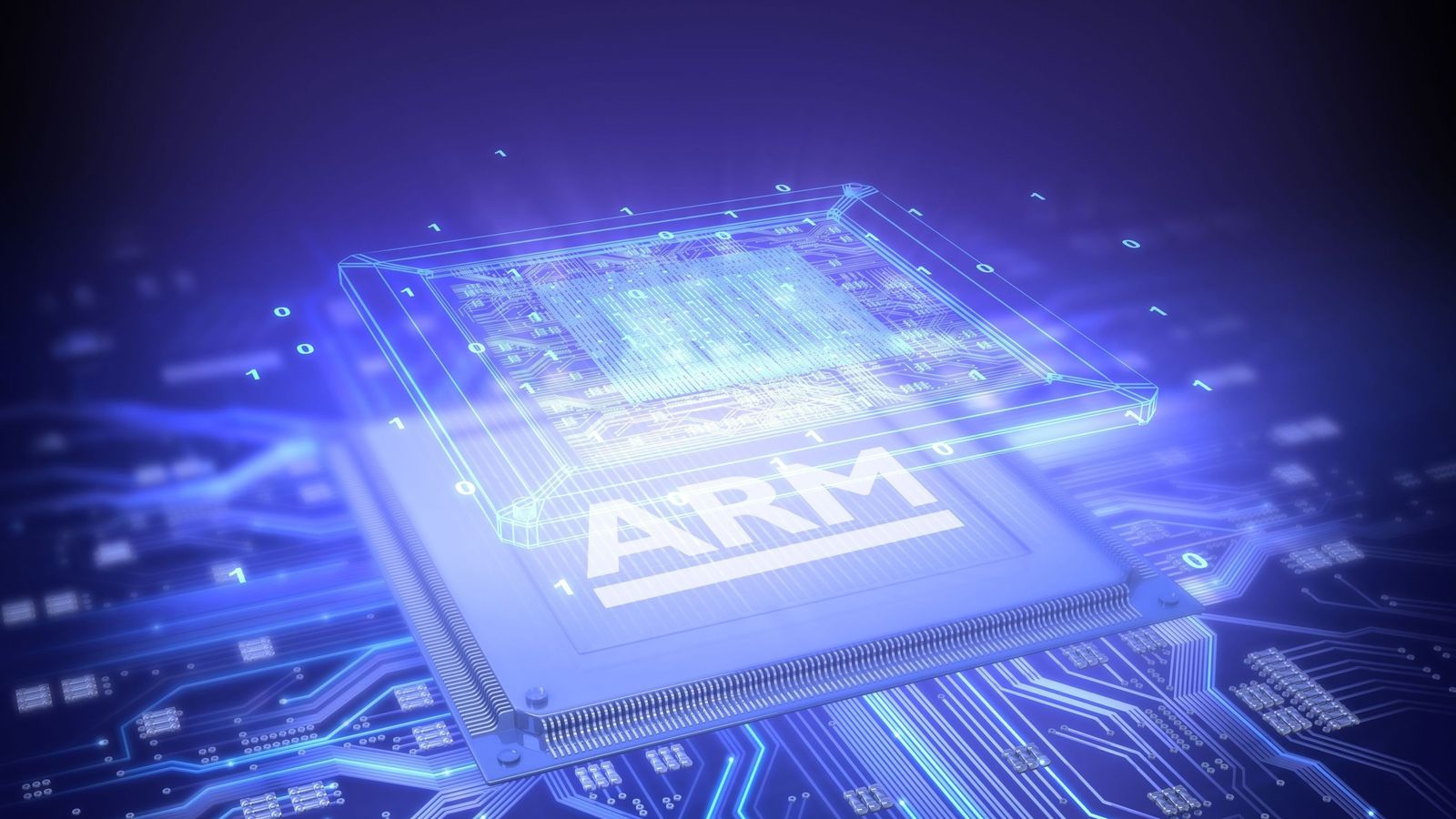The planned $40bn (£29bn) sale of UK-based chip designer Arm Holdings will be scrutinised by regulators over potential national security concerns after an intervention by the government.
Digital secretary Oliver Dowden has stepped in after current owner, Japanese conglomerate Softbank, agreed in September to sell Arm to America’s Nvidia.
The intervention is designed to ensure that an investigation of the deal by the Competition and Markets Authority (CMA) includes “any national security implications for the United Kingdom”.
Please use Chrome browser for a more accessible video player
These issues will also separately be considered by the government, it said, as Mr Dowden issued a public interest intervention notice (PIIN) over the deal.
The department for digital, culture media and sport (DCMS) described Cambridge-based Arm as a major global player in the semiconductor industry – a sector that is fundamental to technologies from artificial intelligence and quantum computing to 5G.
“Semiconductors also underpin the UK’s critical national infrastructure and are found in defence and national security related technologies,” it said.
Mr Dowden said: “Following careful consideration of the proposed takeover of Arm, I have today issued an intervention notice on national security grounds.
“We want to support our thriving UK tech industry and welcome foreign investment, but it is appropriate that we properly consider the national security implications of a transaction like this.”
The CMA must now carry out a preliminary “phase one” investigation into the deal and submit a report to the government by 30 July.
Mr Dowden may then clear the transaction – with or without conditions attached – or refer it for an in-depth “phase two” investigation by the regulator.
After that process and any recommendations by the CMA he has the power to act to “remedy, mitigate or prevent any effects adverse to the public interest”.
The government has issued 12 PIIINs on national security grounds since legislation in 2002 but none have resulted in a “phase two” probe or a deal being blocked.
A spokesperson for Nvidia said: “We do not believe that this transaction poses any material national security issues.
“We will continue to work closely with the British authorities, as we have done since the announcement of this deal.”
Arm does not make chips but licenses its designs to most of the global semiconductor industry with customers including Apple, Samsung, Intel and Qualcomm.
Please use Chrome browser for a more accessible video player
The 180 billion chips sold based on its technology are used in products ranging from smartphones to toasters.
Downing Street said at the time of the deal’s announcement that the government was investigating it closely.
Nvidia said then that Arm would remain based in Cambridge and its site expanded but Arm’s co-founder Hermann Hauser said it was a “disaster” and urged the UK to block it.
Mr Hauser pointed to a potential impact on UK jobs, damage to Arm’s business model and the possibility of the products in which its technology is used being subject to US export controls.
“The decision on whether hundreds of UK companies that use Arm processors can export their products anywhere in the world will be made in the White House, not in Downing Street,” Mr Hauser told Sky News in September.
Arm was bought by Softbank for £24bn in 2016.





















